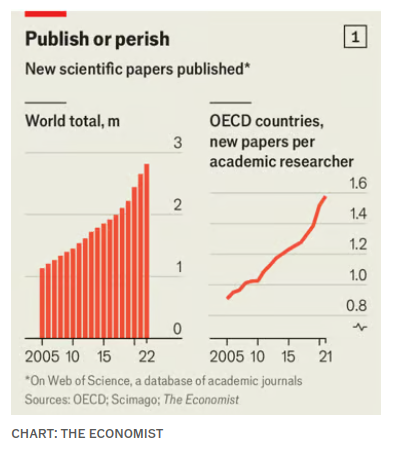
Experimental economist • Senior Researcher @INRAE_france • Food labeling • Risk • Open licenses • R enthusiast @paolocrosetto@econtwitter.net
How to get URL link on X (Twitter) App


 Growth in paper is no news.
Growth in paper is no news.


 Turnaround times -- from submission to publication -- are a marker of review quality and of efficiency of editorial handling.
Turnaround times -- from submission to publication -- are a marker of review quality and of efficiency of editorial handling.
 First, the problem.
First, the problem. 

 First, the facts. WoS announced several de-listings with the aim of keeping the publishing sector clean.
First, the facts. WoS announced several de-listings with the aim of keeping the publishing sector clean. 
 First thing first -- the paper is ungated (for a limited time) here: authors.elsevier.com/a/1gIghc24a-em6
First thing first -- the paper is ungated (for a limited time) here: authors.elsevier.com/a/1gIghc24a-em6https://twitter.com/BorsboomDenny/status/1541148916011438080The problem is simple to state, very hard to solve.